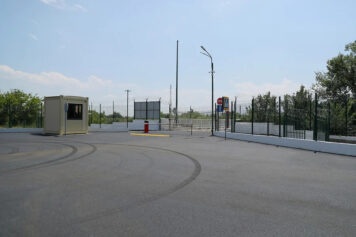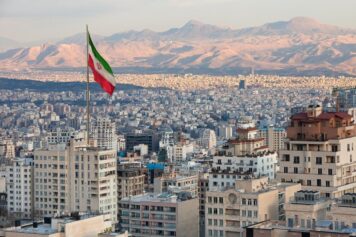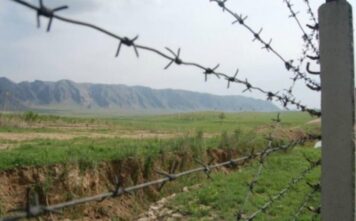The big game of the US at our gates
05.08
2025
Part two
Alongside the broader consensus to diminish Russia’s role in the region, Spain, the UK, and Germany have agreed to sell Eurofighter jets to Turkey. While the U.S. withheld F-35s from Ankara, it encouraged its European partners to make this move — signaling to Iran, Russia, and the wider world that NATO is strengthening its ally’s security with advanced technology.
What is happening in Turkey, or what plans does Washington have for its ally? The U.S. will remove Turkey from Syria and concentrate it in the Caucasus. This is what I have been saying regularly for the past five years, that the issue of strategic balance in the South Caucasus is essentially and organically dependent on the alignment and balance of power in the Middle East.
The task is to make Iran a submissive partner without regional ambitions. Iran’s military-political groups have been neutralized in Lebanon and Syria. The next step is to reduce Tehran’s role in Iraq, or at worst, make it controllable. After that, resolving Houthi issues in Yemen becomes a matter of time, and the U.S. military presence in Syunik will mean that Iran has no choice but to diplomatically capitulate to NATO’s Turanian corridor. If Washington enters Syunik, then Turkey and Israel enter with it. It turns out that the entire southern gate of occupied Artsakh, from Agarak to Horadiz, 155 km, becomes a NATO threat for Iran. But the U.S. must have a reason, a justification for entering the region, and for this there must be a geopolitical contradiction in the region. To create this contradiction, there is Nikol Pashinyan’s government in Armenia, which has gradually entrenched anti-Russian sentiments and perceptions over the past seven years.
The turning point, they note, came in 2018 with then–U.S. National Security Advisor John Bolton’s visit to Yerevan, where he spoke of revising history, improving ties with Turkey, and pursuing policies contrary to Iran and Russia.
I have regularly warned that the task of the junta brought to power in Armenia is to serve that very agenda, at the cost of the lives of thousands of our sons. I have repeatedly spoken about and objectively criticized Russia’s wrong and ill-calculated policy toward Armenia and Artsakh.
Discussion on Russia’s possible actions is necessary, but it must be reiterated that Russia’s failed security and military policies in Armenia and Artsakh cannot be praised or justified. The situation is critical. If Moscow does not seriously revise its policy and restore its positions here, counterbalance the strategic shifts occurring in the South Caucasus, take decisive steps against the Turkish factor in Azerbaijan, or correct its historically flawed stance on the Artsakh issue, it risks losing influence in the South Caucasus entirely. Moreover, it could long forget the friendship with Armenians, not to mention the risks to its own territorial integrity. The Armenian population may also lose confidence in Russia if it tries to keep Prime Minister Nikol Pashinyan in power in exchange for concessions in Syunik or other agreements.
Imagine a repeat of the 44-day war scenario: Salafist jihadists from Syria could get deployed in the occupied regions of Artsakh near the Iranian-Armenian border. This is not a conspiracy theory but a realistic projection. The existential adversary of Salafist jihadists is not Israel but Iran, as a Shia state. Syria’s interim president, Ahmed al-Sharaa, aims to weaken Iran’s presence in Syria and steer the country toward federalization. Seven months ago, I noted that the U.S. would not simply support a former jihadist with a terrorist past for the sake of destabilizing Assad’s regime, nor lift decades-long economic sanctions arbitrarily. Targeted violence in areas such as Suwayda (with a Druze population), Latakia, and Jableh (with Alawite populations) was not organized for nothing. The goal was to maintain tension through internal rebellions and riots, and to turn citizens of the same state into archenemies.
How much does Pashinyan have in common with Ahmed al-Sharaa? Anyway, Recently, al-Sharaa visited Baku—a fact largely unnoticed. Why Baku, and what role did a leader with a terrorist past play in another state with a similar history? According to media reports confirmed by a senior Israeli defense official, a secret meeting of Syrian-Israeli intelligence and security services took place in Baku, with al-Sharaa participating. Discussions focused on establishing diplomatic relations between Syria and Israel and neutralizing Iran.
Baku is thus strategically vital for any anti-Iranian initiatives. It is possible that the issue of mercenaries was also raised during Azerbaijan-Syria talks. During the 44-day war, Syria sent over 800 jihadist fighters to Artsakh, with more than 500 casualties remaining in Armenian-controlled areas. The U.S. aims, through al-Sharaa, to neutralize tens of thousands of foreign mercenaries in Aleppo, Damascus, Homs, and Hama who resist al-Sharaa’s authority, creating dual power structures and headaches for both the U.S. and Israel. Two months ago, U.S. President Trump met Syria’s interim president in Saudi Arabia and, at the Saudi crown prince’s request, announced lifting sanctions on Syria. During the negotiations, the White House stressed the need for the return of mercenaries to their countries and their removal from the Syrian army. Al-Sharaa successfully persuaded Trump to delay such action, keeping the mercenaries under surveillance until they staged internal uprisings.
If Turkey’s influence grows in the region, if Syria’s president acts as Erdogan’s proxy, if Turkey remains Azerbaijan’s ally and patron, and if Shia Iran remains a potential target, then deploying Sunni mercenaries in northern Iran-adjacent areas such as Azerbaijani-occupied Artsakh becomes realistic.
Turkey must also be involved in the Syrian security quagmire so that its reputation is tarnished among the Syrians, because Turkey has gone too far in Syria and exceeded the role assigned to it. Therefore, the Turkish presence in Syria must be somehow restrained, limited, by drawing it into an armed conflict. U.S. policy is very pragmatic and its intelligence and security agencies know everything and about everyone.
The US CIA has been financing, sponsoring, arming, and providing the Kurds with weapons, money, and opportunities to counter Turkish influence for 15 years and, if necessary, to detonate that mine. And what happened with Ocalan and the PKK was a show to avoid angering Turkey. The Kurds were sacrificed in Turkey, but they control Syria. So when Ankara decides to gain dominance in Syria or Iraq, the Americans will probably turn a blind eye to the activities of Iranian armed groups, which, although they suffered heavy losses, still have armed cells in Syria and Lebanon. If the US tries to eliminate their role so that they do not pose a threat to Israel, they may re-enter the arena, this time to counter the growing Turkish influence. In any case, the continuation of the Turkish-Iranian proxy war in Syria is possible at any time.
Both Turkey and Iran have so far avoided direct confrontation in Syria, calculating that a war there would not serve their interests and would only disrupt the strategic balance in favor of Israel. Yet, what is happening in Syria today is a direct indicator of the future geopolitical map of the region.
For the United States and Israel, the emergence of a strong Sunni-jihadist regime in Syria is unacceptable, and Israel will never tolerate such a government. This is why Israel positions itself as the protector of Syria’s Druze community. In fact, nothing has changed: what began in Lebanon 50 years ago is now being repeated. During Lebanon’s 15-year civil war, every regional power had its own protégé in the country: France and Israel backed the Maronites (with Israel also supporting the Druze), Syria backed the Palestinians and Christians, Iran supported the Shiites, while Saudi Arabia and the U.S. offered support as needed. The result was deepening sectarian hatred and a Lebanon that has never truly recovered.
The result was that hatred between communities deepened in the country, and Lebanon could not and will not be able to come back to its feet. And the solution is offered by the U.S.: the federalization of countries, that is, Christians, Sunnis, Shiites, Druze, Kurds, each for themselves, will have autonomy in a certain territory, supposedly with the prospect of making these states democratic. But in fact, all this is being done, borders are being drawn and changed for one purpose: no community should have an advantage. What happened in Syria, Lebanon and Iraq is a clear message to the Gulf Arab countries, Saudi Arabia, Qatar and Turkey, to be careful about political support and positions, otherwise, the plans for federalization or exploding the country from within will reach them as well.
Meanwhile, although the recent 12-day Iran–Israel conflict has formally ended, explosions at factories and fires in residential buildings continue in Tehran. It would be naïve to attribute these incidents merely to heat or high temperatures. Two weeks ago, I issued a warning to pay attention to the statements of U.S. Ambassador to Turkey Tom Barrack. He spoke about the fate of the entire Greater Middle East, which also includes the South Caucasus — meaning Armenia as well.
If the U.S. has decided to limit Turkey’s role in Syria, and if Washington and Moscow have reached consensus that Ankara’s involvement in Ukraine must remain under control, then to partially satisfy Turkey’s ambitions, the U.S. would have to take two steps: first, sacrifice the Kurds in Turkey, and second, shift Ankara’s sphere of influence from the Middle East to the South Caucasus.
In this region, the weakest point is Armenia, which has been slowly declaring a divorce from Russia’s security orbit.
In politics, everything has a price, and it is important that those in Armenia who pose as “pro-European” but lack real political experience understand this. Weakening Russian and Iranian influence in the South Caucasus does not serve Armenia’s, Artsakh’s, or the Armenian people’s national-state interests.
The collapse of Prime Minister Nikol Pashinyan’s authoritarian government would provide an opportunity to properly rebuild Armenia’s network of allies and find solutions. Otherwise, the country risks becoming a battlefield for proxy wars.
One cannot play games with Russia and the United States. If the government continues to gamble on U.S.-Russian contradictions, Turkey and Azerbaijan will be the main beneficiaries, or Russia could respond with a harsh approach, or Armenia could end up under Turkish control, reduced to the status of a vilayet, serving as a corridor for Turkish-Azerbaijani interests.
The patience of the public has long since run out, and hasty decisions must be avoided. My position is clear: with cold calculation and collective leadership, we must dismantle the ideology that is destroying Armenia, i.e. Nikolism.





